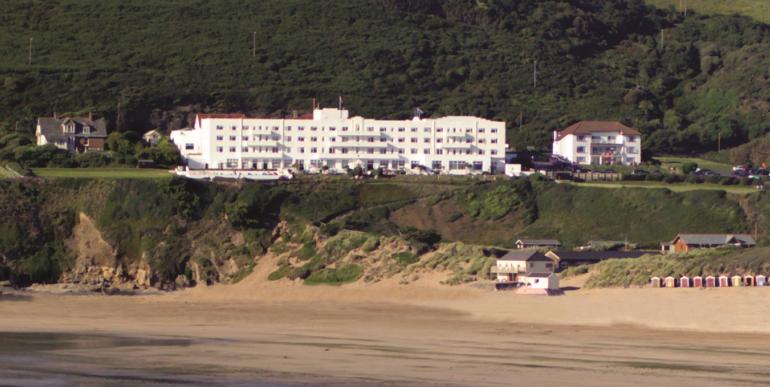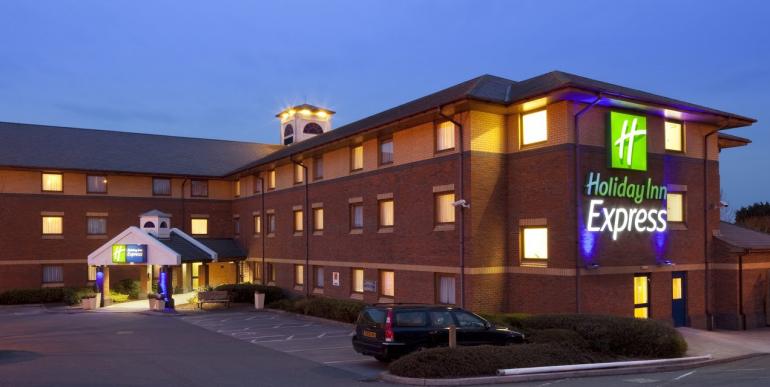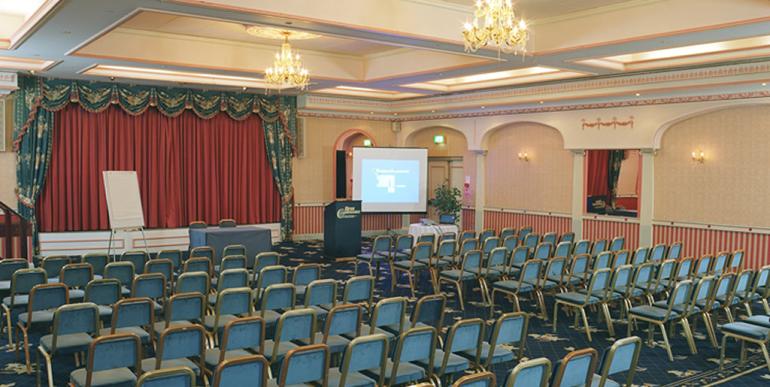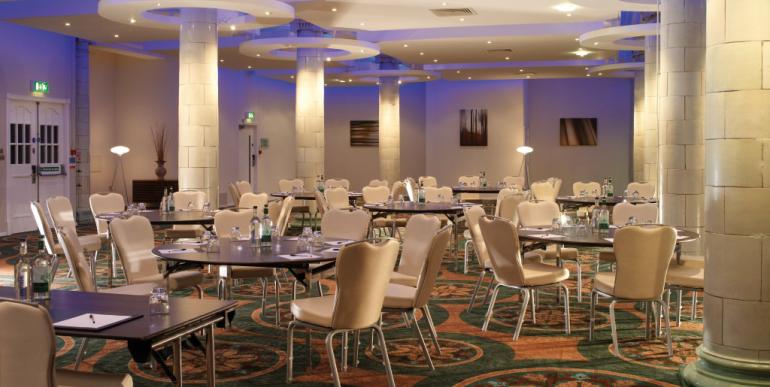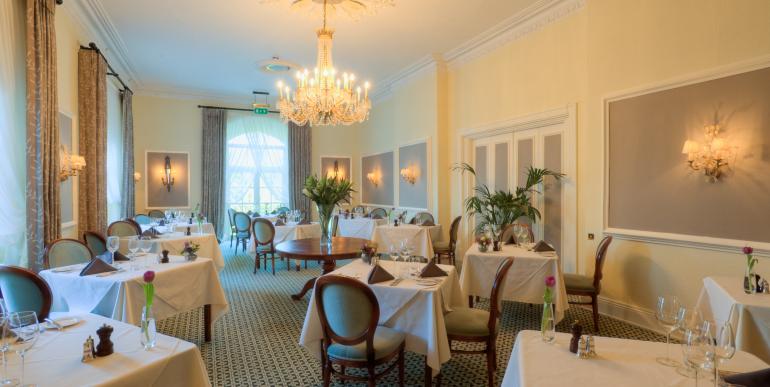For many people, Devon conjures up cosy images of warm weather, trains along the Dawlish coastline, Exmoor and Dartmoor, and The English Riviera resorts. From Plymouth to Beer, or Lynton to Bideford, it has lots to offer. Besides sunshine and scenery a wealth of conference venues, many of which on the south side of Devon.
The city of Plymouth, on the banks of the Tamar and Plym rivers leading to the Plymouth Sound is a clear boundary between Devon and Cornwall. It was heavily bombed by the Luftwaffe in the Second World War and extensively modernised shortly after, with its naval base a main target. Today, it remains a vibrant cultural and commercial centre for South Devon with a wealth of multiple and independent retailers and the recently restored Tinside Lido. From The Sound, there are regular sailings to St. Malo, Santander and Roscoff.
Eastwards, and of similar importance to Plymouth, is the city of Exeter. Dominated by the River Exe, it has been home to the Met Office since 2003. It is a historic city whose cathedral dates from the 12th century. Other landmarks include Northernhay Gardens, the oldest open space in England dating from 1612, the ruins of Rougemont Castle and its Guildhall, the oldest municipal building in England still in use.
Both Plymouth and Exeter are cities with universities, with the latter affiliated to the influential Russell Group. They are an excellent starting point for exploring Devon, with Exeter handy for Dartmoor, Exmouth, Teignmouth, Dawlish and the English Riviera resorts around Tor Bay. The biggest of the three resorts is Torquay, where The Riviera Centre is one of Devon's foremost conference venues. It has a harbour, numerous tourist attractions including the historic Torre Abbey, theatres and excellent shopping facilities.
Close by is Paignton, another popular seaside resort within Torbay. Attractions include a pier, Paignton Zoo and the Dartmouth Steam Railway. The preserved line starts at Paignton before terminating at Kingswear, where passengers continue to Dartmouth on a ferry. With a castle and historic harbour at the end of the River Dart, Dartmouth is a most attractive small town. Other landmarks include The Butterwalk shopping arcade dating from the 17th century, the Dartmouth Royal Naval College further upstream, and Greenway Estate - Dame Agatha Christie's former residence.
Brixham, the most southerly of the English Riviera resorts, is a small and hilly fishing town with a large natural harbour. It is a largely unspoilt place dominated by its quayside, once a popular berthing place for warships. A replica of The Golden Hind stands in the shoreward part of the harbour and is open to visitors. It has been seen on film and television and its five decks are available for hire. As unique conference venues go, this one really takes the (ship's) biscuit.
Towards Dartmoor is another preserved line, the South Devon Railway which begins at Totnes and finishes at Buckfastleigh. Its 6.64 mile route follows the River Dart and offers a scenic way of getting to Dartmoor. Totnes is noted for its independent shops, Bohemian atmosphere and its Motte and Bailey castle. At its northern point, Buckfastleigh is dominated by Buckfast Abbey, founded by Earl Aylward in 1018 as a Monastic Settlement.
Mid-Devon is dominated by its main shopping and commercial centre, Tiverton. It is ideally placed for visiting the National Parks in Dartmoor and Exmoor. Attractions include the Coldharbour Mill, a working textile museum in a former worsted and woollen mill. Just off the A361 into North Devon, towards Barnstaple is the market town of South Molton and the village of Swimbridge. The latter place, its church and a small yet stocky dog bred by its one time Reverend, John Russell: the Jack Russell Terrier.
Further north are Barnstaple, Bideford and Ilfracombe. A great number of conference venues around the three towns are within hotels, some of which built for holidaymakers. Barnstaple was a one time river port, and is famed for The Pannier Market. It is North Devon's principal shopping centre with a number of chain stores. A few miles south west is Bideford and like its neighbour, that too has a Pannier Market and a quay. Other attractions include a Designer Shopping Outlet and adventure park. Only three miles away is the village of Westward Ho!
The popular seaside resort of Ilfracombe is dominated by Hillsborough Head, its harbour, rock pools, and, after a fire consumed part of the previous building, The Landmark Theatre. Opening in 1998, its offbeat shape is said to resemble one of Madonna's bras! Inside, it has cinema-screening facilities, a smaller room for meetings or private functions and a café bar. Both the Main House and Pavilion auditoria are available for hire as conference venues.
The eastern part of Devon is blessed with beaches and picturesque seaside resorts. Close to the villages of Beer and Seaton is Pecorama. Its gardens include a permanent model railway exhibition, narrow gauge railway, the Orion Pullman Car, and an art gallery and lecture theatre. The Pullman Car, lecture theatre and art gallery are available for hire as conference venues.
To the west is Sidmouth, Budleigh Salterton and Exmouth. Exmouth, at the mouth of the River Exe estuary is the largest of the three, with its harbour, marina and lengthy prominade. It is regarded as the oldest holiday resort in Devon, one which rose in popularity when the railway came in 1861. On the opposite side of the River Exe estuary is Dawlish. After being a fishing village, Dawlish rose in popularity as a seaside resort. The main line to Plymouth skirts the promenade making for one of the most scenic rail journeys anywhere in the United Kingdom.
Only a short distance away from Dawlish, on the same route, is Teignmouth. It is a vibrant seaside resort with a harbour, a pier, and the Teignmouth Lido, a heated open air swimming pool. The resort takes its name from the River Teign estuary, which continues via Newton Abbot. Newton Abbot is a small town best known for its racecourse and is home to the only traditional malthouse and one of two traditional cider houses in the UK.
From Newton Abbot, you may want to visit Dartmoor National Park. Its moors are topped by exposed granite hilltops (known as 'tors'). There is a number of ancient standing stones, hut circles and forest land. Other landmarks include Castle Drogo, an Edwardian faux castle, and the village of Widecombe-in-the-Moor, reputed to have been visited by the Devil.
By road, Devon's main routes are the M5 motorway up to Exeter, the A38 which continues to Cornwall, the A361 to Barnstaple, and the A30 which passes the northern part of Dartmoor. By rail, there are regular inter-city services to Penzance, Plymouth and London Paddington via Exeter St. Davids. Some continue to Birmingham New Street and Manchester Piccadilly railway stations. Local services also cover a number of Devon's seaside resorts, particularly Paignton, Torquay, Exmouth and Teignmouth. Regular domestic flights serve Exeter airport.
For a truly inspirational setting to host your event, you cannot go far wrong with Devon. Whether your choice of conference venues entails purpose built centres or Pullman Cars, you're in for a treat.


